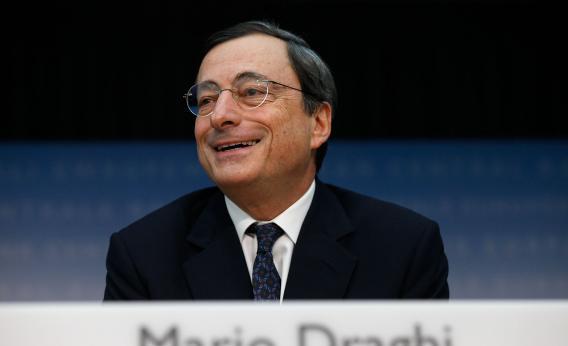Mario Draghi is out with a new European Central Bank plan that, on its face, doesn’t make sense.
For the loose money crowd, he’s offering potentially “unlimited” ECB purchases of peripheral government bonds. But on the other hand, he’s promising that these purchases will be “sterilized” (which I don’t believe can actually be done in unlimited quantities). He’s also saying that the bond purchases will be limited to government bonds, which turns it into a kind of subsidy for peripheral governments rather than a general monetary easing. Last but by no means least, there’s no firm target for what the bond purchases are supposed to accomplish and the purchases are stipulated to be “conditional.”
The last point is the most important one. As monetary policy, this doesn’t make sense. But as power politics it makes a ton of sense.
What the ECB is doing, in essence, is setting itself up as the shadow government of Italy, Spain, Portugal, and perhaps Ireland. If the governments of those countries do what Draghi wants, Draghi will provide them with generous subsidy. If the governments of those countries don’t do what Draghi wants, he’ll use a monetary laser to destroy their budgets. Fear will keep the peripheral states in line.
As I’ve said many times before, this is an incredibly destructive course for a central banker to steer. The job of a central bank is to provide a stable and appropriate course of aggregate demand. The job of a legislature is to figure the rest out. If Italian politicians want to stick with policies that leave the economy rigid and cause a lot of that demand to turn into inflation rather than real output, that’s their problem. If Portugese politicians disagree with ECB staff economists about what kind of policies are likely to lead to long-term prosperity for Portugal’s citizens, they’re entitled to give it a try. And while it happens to be the case that the ECB is pushing a set of more or less “business-friendly” policies, the course it’s steering is incredibly hostile to the basic interests of any kind of reasonable businessman. In order to make its political threats credible, the ECB has to essentially promise that it won’t be delivering stable monetary conditions. Instead the plan is to let things whipsaw as a means to discipline and punish elected officials.
